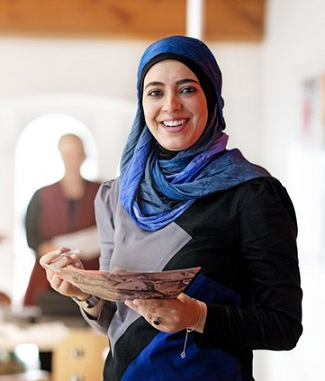 With every passing year, workplace equality becomes a higher priority for organizations around the world – and those in the Middle East and North Africa (MENA) region are no exception.
With every passing year, workplace equality becomes a higher priority for organizations around the world – and those in the Middle East and North Africa (MENA) region are no exception.
According to the ‘Working Women in the Middle East and North Africa’ survey by YouGov and Bayt.com, the Middle East’s number one job site, over three in four women in the UAE believe that job offers are based entirely on experience and qualifications, regardless of gender. This figure surpasses the regional average and places the UAE as the number one country when it comes to how easy it is for female job seeks to find work.
The online survey, among over 4,000 women in MENA, sought to explore the status of working women in the region by analyzing their perceptions when it comes to equality at work and looking into their motivations for employment, their challenges faced at work, as well as career and life ambitions. When asked about workplace equality, the survey revealed that more than 8 in 10 respondents believe that women in the UAE have reached the same level of workplace equality as women in western countries.
Spotlight on the UAE: Workplace Equality
Women in the UAE seem to be more content with gender balance in the workplace when compared with women in other MENA countries. Regionally, three quarters (75%) of respondents say that there is a mix of men and women working in the same workplace. In the UAE, this figure is almost 10 percent higher than the regional average at 84%. What’s more, a large majority (73%) of women in the UAE say they are comfortable working in a mixed gender environment, with more than half (54%) claiming to be extremely comfortable. 23% are neutral on the subject, while only 3% said they are uncomfortable.
While three-quarters (74%) of respondents working in a mixed-gender environment report having a male manager at their current organization, nearly the same proportion (73%) have no gender-based preference for a manager.
In the UAE, seven in ten (70%) respondents report that they work almost an equal number of hours as their male colleagues, 6% believe they work less hours than their male counterparts, and only 16% said they work more hours. 8% didn’t provide an answer.
As for female-specific benefits in the workplace, the top five benefits MENA female respondents receive from their organizations are personal health insurance (47%), paid maternity leave (40%), company transport/transport allowance (34%), job-related training (32%), and family health insurance (23%). Regionally, more than two thirds (69%) of women say their organization gives them at least one month of official maternity leave. 5% said their maternity leave is less than one month and only 9% said they don’t have an official policy maternity leave. 19% of respondents did not know what the policy is.
With regard to labor laws in their country of residence, almost all (89%) respondents in the UAE stated they have at least some familiarity with the labor laws in their country, with two fifths (37%) claiming to be very familiar. Of those who are familiar with the labor laws in the UAE, about three quarters (77%) stated that they are fair to women, at least to some extent. Only 8% think they are not fair while 15% did not provide an answer.
Challenges for Working Women in MENA
The top three challenges cited by MENA women in their workplace are less opportunity for job promotions (44%), a stressful and demanding work environment (37%), and lack of or insufficient job training and coaching (30%).
Outside of the workplace, when asked about the key challenges in their life, finding good job opportunities (57%), lack of opportunities to improve their professional skills (41%), and not having enough opportunities to relax or socialize (36%) emerged as top three challenges for women in MENA.
Despite these challenges, a majority of female respondents believe men and women are treated equally in the workplace across a variety of areas, including working hours (68%), training and development (68%), advice and support (60%), recruitment and selection (56%) and benefits (55%).
Career Outlook for Women in MENA
Women’s happiness in the region is largely career-oriented, with having a successful career (49%) emerging as the top driver of happiness. This was followed by good health (42%), traveling and visiting other countries (36%), spending time with their families (34%), and making money (29%).
Moreover, women in MENA cite financial independence (59%), the ability to support/financially contribute to their households (50%), the opportunity to broaden their perspectives on life (46%), making use of their education (42%), and securing their family and children’s futures (40%) as their top five reasons for seeking employment.
At the same time, women around the world understand the importance of finding balance between their responsibilities at home and at work. In MENA, more than half (54%) of respondents with children stated that their decision to have children has affected their career, at least to some extent, while 41% said it didn’t affect it at all.
Further, over half (52%) of those surveyed believe their future marriage plans would affect their career choices, at least to some extent, while 29% said it wouldn’t affect it at all and 19% didn’t know. However, the majority of female respondents who are married indicated that their career choices had created either a positive effect (36%) or no effect (34%) on their marital life.
“As the world progresses to bring gender equality to the workplace on a greater scale, perceptions and opinions like those found in this survey provide valuable insight into what is working well and where organizations may need to improve. This survey seeks to better inform organizations in the MENA region and around the world on how they can facilitate workplace equality for their employees – and particularly those that balance their careers with a family and other personal responsibilities,” said Anjali Chhabra, YouGov Associate Research Director.
Data for the ‘Working Women in the Middle East and North Africa’ survey was collected online from October 26 to November 26, 2017, among 4,053 female respondents living in Algeria, Bahrain, Egypt, Jordan, Kuwait, Lebanon, Morocco, Oman, Qatar, Saudi Arabia, Syria, Tunisia, and the UAE.


